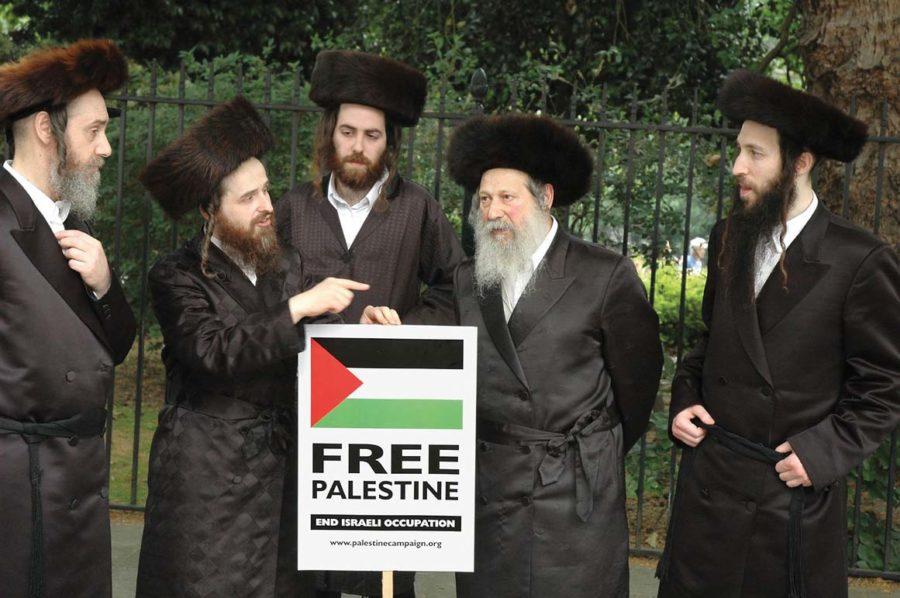Belding: UN membership no answer to Israel-Palestine conflict
September 26, 2011
Membership in the United Nations for the Palestinian Authority will not bring a peaceful resolution to the decades-long conflict between Israel and Palestine. President Mahmoud Abbas’ petition for his state to join the U.N., formally filed Friday, seems more like an attempt to simply have more voting countries on his side than Israel. This is especially so after his cool reaction to a peace talks proposal put forth by the Middle East Quartet — the United States, the U.N., the European Union and Russia.
Providing one state for Israelis and another for Palestinians is not a real solution to their conflicts. Since 1948, some 3,000 Israelis have been killed and some 25,000 have been wounded in non-war encounters. Estimates of Palestinian deaths vary widely, but range from nearly 50,000 on up to more than 70,000.
After centuries of coexisting, these two peoples, Israeli and Palestinian, with their different customs, religions and languages should have agreed to disagree by now. But they haven’t. If the people who live between the Jordan River on the east and the Mediterranean Sea on the west want to live in peace and harmony with one another, they have to work at it themselves.
Lumping people into categories, putting them in boxes the way we did when we took it for granted that Jews and Muslims couldn’t work together on issues of mutual concern and leave each other alone on issues that didn’t spill over into the lives of others, is simply unfair.
The two-state solution is a relic from President Woodrow Wilson’s presumption that each ethnic group needed its own state. That presumption was disproved by Hitler’s blitzkrieg.
Creating states based on ethnic lines neither solves problems nor creates respectable states. If a country composed of two ethnic groups cannot maintain law and order when it is one, why should we suppose that country, divided into two along ethnic lines, would be less disposed to unsettle international order and fight outright wars?
The practice of giving a state to each people leads to weak states, not strong ones. With less area and tax base, their governments are less able to defend themselves against internal and external threats. Think of our own country. As 13 loosely united states after our own war for independence, the national government was unable to defend itself and begged state governments for money. Then, as a united country, it was suddenly able to negotiate its own foreign policy in the chaotic, post-French Revolution world, levy taxes, and match, at least some degree, the world’s leading empire in the War or 1812.
A federal system like our own may be more appropriate. Our national government in Washington, D.C., takes care of national concerns. State governments dispense with state matters, and city, county and township organizations have their own realms of action. This system of federalism works well for us, because common people vote and participate in politics and do not allow elites to decide how everyone will lead their lives.
The U.N. will bring about as much peace to the Israeli-Palestinian conflict after Palestine becomes a member state as it has contributed since 1948. And by that I mean unless the people of that region take it upon themselves to vote for leaders who refuse to deal violently with the opposite group, nothing will change.
The Israelis will continue to build settlements in historically Palestinian areas, and members of Hamas (the “Islamic Resistance Movement”) will continue to use suicide bombings to terrorize anyone who disagrees with them, whether they be Jewish zealots or moderate Arabs.
Roughly 10 million people live in an area of about 10,000 square miles. That averages out to a population density of a thousand people per square mile. That may be less than half the population density of Ames, but it still means that people live in close proximity. Until neighbors realize they are in fact neighbors, and that their hostile activities impact their neighborhood, the conflict will persist.
The U.N. isn’t about uniting the nations of the world into one country. It isn’t about forcing a minority of nations to comply with the majority’s decision in all cases. The U.N. is only about stabilizing the interactions of foreign governments. That says nothing about how their people treat one another. Given the prevalence of suicide bombings by non-governmental groups, especially over the past decade, we should be skeptical of the idea that U.N. membership for Palestine will solve their problems with Israel and the Israelis.







